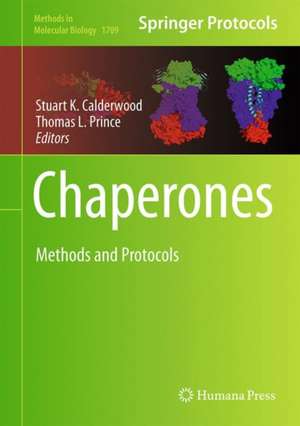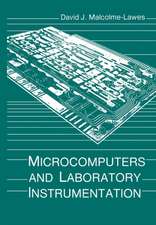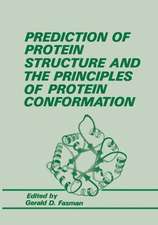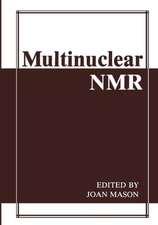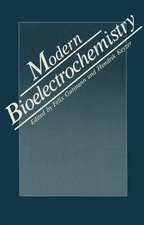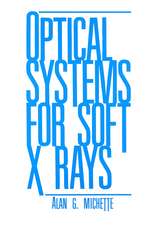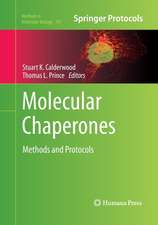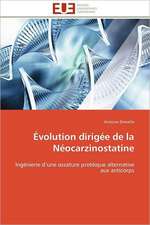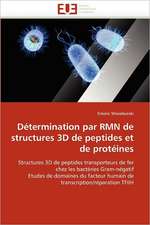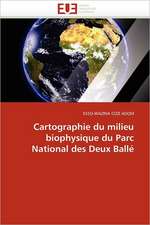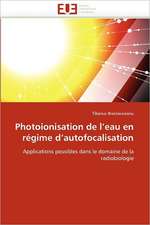Chaperones: Methods and Protocols: Methods in Molecular Biology, cartea 1709
Editat de Stuart K. Calderwood, Thomas L. Princeen Limba Engleză Hardback – 26 noi 2017
Authoritative and practical, Chaperones: Methods and Protocols aims to ensure successful results in the further study of this vital field.
| Toate formatele și edițiile | Preț | Express |
|---|---|---|
| Paperback (1) | 647.24 lei 38-44 zile | |
| Springer – 5 sep 2018 | 647.24 lei 38-44 zile | |
| Hardback (2) | 1128.89 lei 6-8 săpt. | |
| Springer – 26 noi 2017 | 1128.89 lei 6-8 săpt. | |
| Springer Us – 5 aug 2023 | 1393.90 lei 6-8 săpt. |
Din seria Methods in Molecular Biology
- 9%
 Preț: 791.63 lei
Preț: 791.63 lei - 23%
 Preț: 598.58 lei
Preț: 598.58 lei - 20%
 Preț: 882.98 lei
Preț: 882.98 lei -
 Preț: 252.05 lei
Preț: 252.05 lei - 5%
 Preț: 802.70 lei
Preț: 802.70 lei - 5%
 Preț: 729.61 lei
Preț: 729.61 lei - 5%
 Preț: 731.43 lei
Preț: 731.43 lei - 5%
 Preț: 741.30 lei
Preț: 741.30 lei - 5%
 Preț: 747.16 lei
Preț: 747.16 lei - 15%
 Preț: 663.45 lei
Preț: 663.45 lei - 18%
 Preț: 1025.34 lei
Preț: 1025.34 lei - 5%
 Preț: 734.57 lei
Preț: 734.57 lei - 18%
 Preț: 914.20 lei
Preț: 914.20 lei - 15%
 Preț: 664.61 lei
Preț: 664.61 lei - 15%
 Preț: 654.12 lei
Preț: 654.12 lei - 18%
 Preț: 1414.74 lei
Preț: 1414.74 lei - 5%
 Preț: 742.60 lei
Preț: 742.60 lei - 20%
 Preț: 821.65 lei
Preț: 821.65 lei - 18%
 Preț: 972.30 lei
Preț: 972.30 lei - 15%
 Preț: 660.49 lei
Preț: 660.49 lei - 5%
 Preț: 738.41 lei
Preț: 738.41 lei - 18%
 Preț: 984.92 lei
Preț: 984.92 lei - 5%
 Preț: 733.29 lei
Preț: 733.29 lei -
 Preț: 392.60 lei
Preț: 392.60 lei - 5%
 Preț: 746.26 lei
Preț: 746.26 lei - 18%
 Preț: 962.66 lei
Preț: 962.66 lei - 23%
 Preț: 860.22 lei
Preț: 860.22 lei - 15%
 Preț: 652.64 lei
Preț: 652.64 lei - 5%
 Preț: 1055.50 lei
Preț: 1055.50 lei - 23%
 Preț: 883.87 lei
Preț: 883.87 lei - 19%
 Preț: 491.89 lei
Preț: 491.89 lei - 5%
 Preț: 1038.86 lei
Preț: 1038.86 lei - 5%
 Preț: 524.16 lei
Preț: 524.16 lei - 18%
 Preț: 2122.34 lei
Preț: 2122.34 lei - 5%
 Preț: 1299.23 lei
Preț: 1299.23 lei - 5%
 Preț: 1339.12 lei
Preț: 1339.12 lei - 18%
 Preț: 1390.26 lei
Preț: 1390.26 lei - 18%
 Preț: 1395.63 lei
Preț: 1395.63 lei - 18%
 Preț: 1129.65 lei
Preț: 1129.65 lei - 18%
 Preț: 1408.26 lei
Preț: 1408.26 lei - 18%
 Preț: 1124.92 lei
Preț: 1124.92 lei - 18%
 Preț: 966.27 lei
Preț: 966.27 lei - 5%
 Preț: 1299.99 lei
Preț: 1299.99 lei - 5%
 Preț: 1108.51 lei
Preț: 1108.51 lei - 5%
 Preț: 983.76 lei
Preț: 983.76 lei - 5%
 Preț: 728.16 lei
Preț: 728.16 lei - 18%
 Preț: 1118.62 lei
Preț: 1118.62 lei - 18%
 Preț: 955.25 lei
Preț: 955.25 lei - 5%
 Preț: 1035.62 lei
Preț: 1035.62 lei - 18%
 Preț: 1400.35 lei
Preț: 1400.35 lei
Preț: 1128.89 lei
Preț vechi: 1376.69 lei
-18% Nou
Puncte Express: 1693
Preț estimativ în valută:
216.04€ • 224.72$ • 178.35£
216.04€ • 224.72$ • 178.35£
Carte tipărită la comandă
Livrare economică 15-29 aprilie
Preluare comenzi: 021 569.72.76
Specificații
ISBN-13: 9781493974764
ISBN-10: 1493974769
Pagini: 382
Ilustrații: XIX, 445 p. 69 illus., 36 illus. in color.
Dimensiuni: 178 x 254 mm
Greutate: 1.02 kg
Ediția:1st ed. 2018
Editura: Springer
Colecția Humana
Seria Methods in Molecular Biology
Locul publicării:New York, NY, United States
ISBN-10: 1493974769
Pagini: 382
Ilustrații: XIX, 445 p. 69 illus., 36 illus. in color.
Dimensiuni: 178 x 254 mm
Greutate: 1.02 kg
Ediția:1st ed. 2018
Editura: Springer
Colecția Humana
Seria Methods in Molecular Biology
Locul publicării:New York, NY, United States
Cuprins
Targeted Deletion of Hsf1, 2 and 4 Genes in Mice.- Role of Heat Shock Factors in Stress-induced Transcription.- Monitoring of the Heat Shock Response with a Real-time Luciferase Reporter.- Quantitative Profiling of Chaperone/client Interactions with LUMIER Assay.- Measurement of chaperone-mediated effects on Polyglutamine Protein Aggregation by the Filter Trap Assay.- Fluorescent-linked Enzyme Chemoproteomic Strategy (FLECS) for Identifying HSP70 Inhibitors.- A High-throughput Screen for Inhibitors of the Hsp90-Chaperone Machine.- Primary Colorectal Cells Culture as a Translation Research Model.- Cell Death and Survival Assays.- Detecting the Potential Pharmacological Synergy of Drug Combination by Viability Assays In Vitro0pt;">.- nt-size: 12.0ptProteomic Profiling of Hsp90 Inhibitors.- Analysis of HspB1 (Hsp27) Oligomerization and Phosphorylation Patterns and its Interaction with Specific Client Polypeptides.- Nucleotide Exchange Factors for Hsp70 Chaperones.- Determination of Hsp90Activity through Activation of Glucocorticoid Receptors in Yeast.- Bacterial Hsp90 ATPase Assays.- Detecting Post-translational Modifications of Hsp90.- Chromatin Immunoprecipitation (ChIP) of Heat Shock Protein 90 (Hsp90).- background-image: initial; background-position: initial; background-size: initial; background-repeat: initial; background-attachment: initial; background-origin: initial; background-clip: initial; font-size: 12pt; font-family: "Times New Roman", serif; color: rgb(33, 33, 33);">A Workflow Guide to RNA-seq Analysis of Chaperone Function and Beyond.- Computational Modeling of the Hsp90 Interactions with Cochaperones and Small Molecule Inhibitors.- Computational Analysis of the Chaperone Interaction Networks.- Immunohistochemistry of Human Hsp60 in Health and Disease: From Autoimmunity to Cancer.- Immunohistochemical and Flow Cytometric Analysis of Intracellular and Membrane-bound Hsp70, as a Putative Biomarker of Glioblastoma Multiforme, using the cmHsp70.1 MonoclonalDetection and Analysis of Extracellular Hsp90 (eHsp90).- Molecular Chaperone Receptors.- Creation of Recombinant Chaperone Vaccine using Large Heat Shock Protein for Antigen-targeted Cancer Immunotherapy.- A Novel Heat Shock Protein 70-based Vaccine Prepared from DC-Tumor Fusion Cells.- Hsp70: A Cancer Target Inside and Outside the Cell.- Evidence for Hsp90 Cochaperones in Regulating Hsp90 Function and Promoting Client Protein Folding.- Clinical Evaluation and Biomarker Profiling of Hsp90 Inhibitors.n>ttom:.0001pt;line-height: normal;mso-layout-grid-align:none;text-autospace:none">
Textul de pe ultima copertă
This volume is a compilation of laboratory protocols and methodology required for the study of molecular chaperones and the cellular stress response. Chapters detail stress response in Hsf1, Hsf2 and Hsf4 knockout mice, mapping HSP interaction networks, the LUminescence-based Mammalian IntERactome (LUMIER), Hsp70 biology, protein folding activity of Hsp90, cytotoxicity of HSP inhibitors, computational approaches for modeling allosteric Hsp90 interactions, HSPs in immunity and vaccine development , and biologies of Hsp70 and Hsp90. Written in the highly successful Methods in Molecular Biology series format, chapters include introductions to their respective topics, lists of the necessary materials and reagents, step-by-step, readily reproducible laboratory protocols, and tips on troubleshooting and avoiding known pitfalls.
Authoritative and practical, Chaperones: Methods and Protocols aims to ensure successful results in the further study of this vital field.
Caracteristici
Includes cutting-edge methods and protocols Provides step-by-step detail essential for reproducible results Contains key notes and implementation advice from the experts
